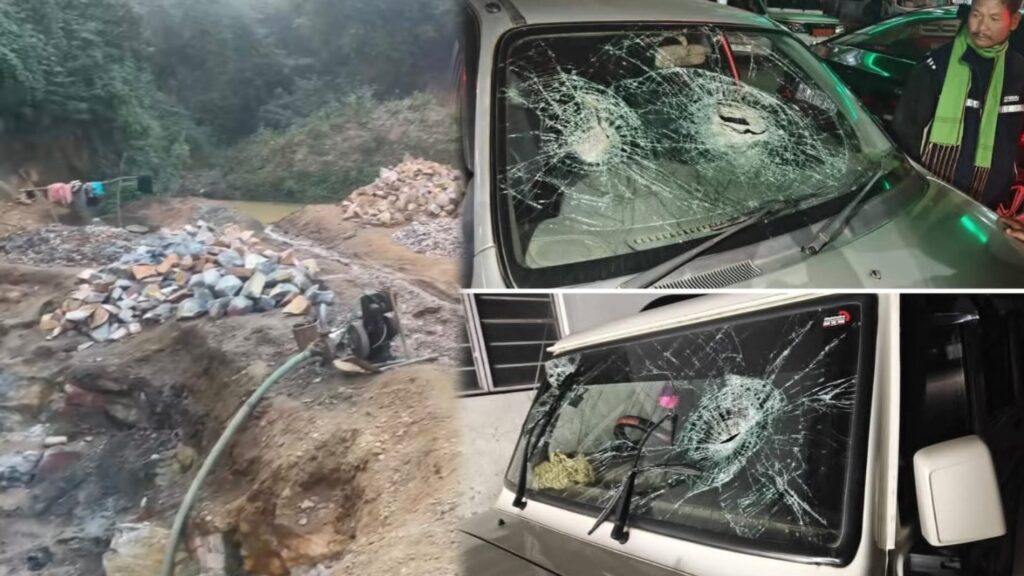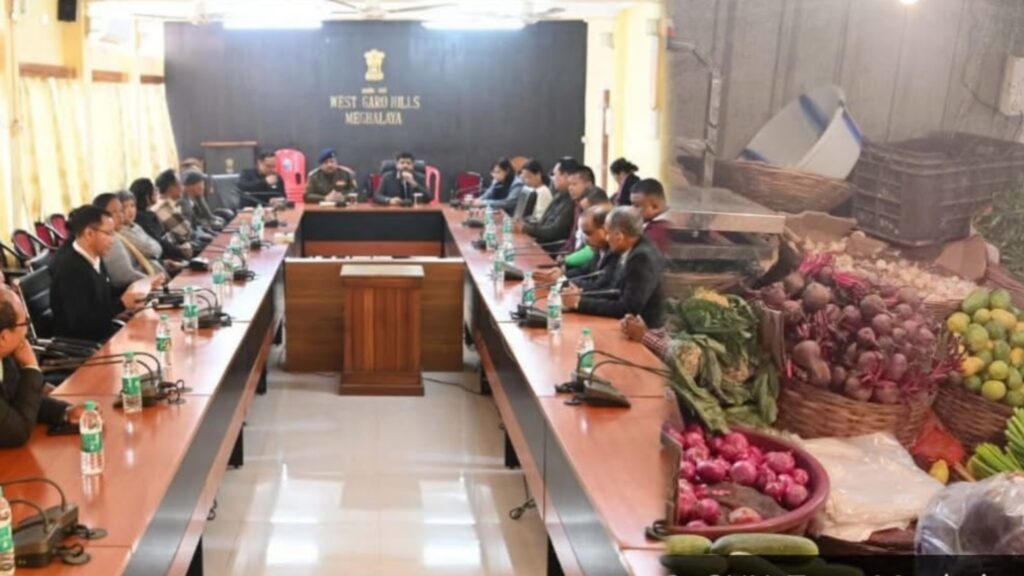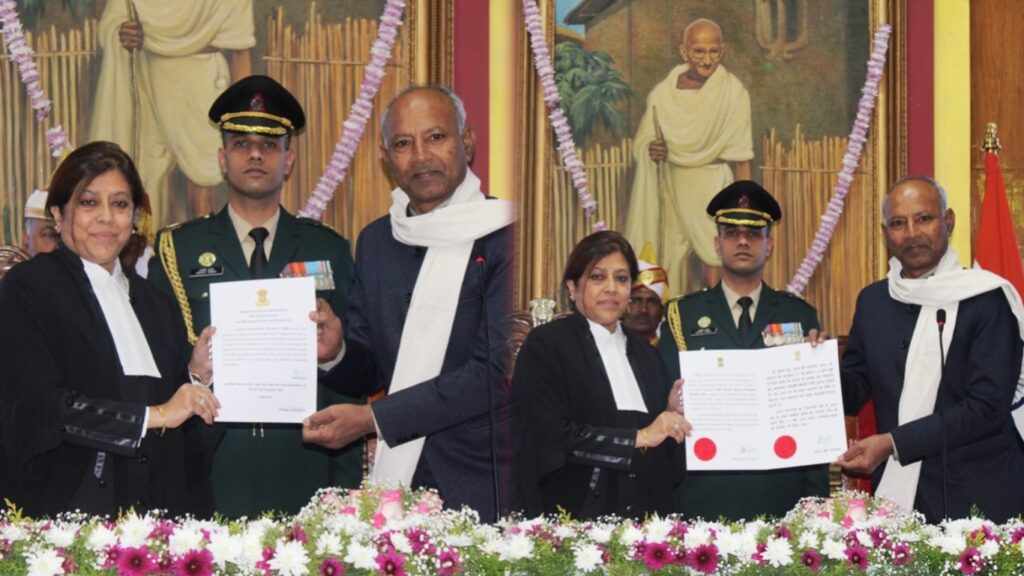From Booker laureates to homegrown voices, three enriching days of literary conversations concludes at the Ward’s Lake, as the 5th Shillong Literary Fest ends on a high note
Shillong, November 22 : The fifth edition of the Shillong Literary Festival concluded today at the iconic Ward’s Lake, bringing to a close, three vibrant days of literary conversations, performances, and creative exchange. As Meghalaya’s flagship festival of literature, art, and storytelling, this successful conclusion reaffirms the vision of Conrad K. Sangma, Chief Minister who has consistently emphasised the role of culture, creativity, and tradition in shaping the State’s identity and global cultural presence. Growing bigger and bigger with every passing edition, this year highlighted Shillong’s unique ability to inspire, echoing the words of noted writer Banu Mushtaq, who said, “To stand in Shillong today feels like walking into a page that has been quietly waiting for me.”
The festival witnessed an impressive turnout, with visitors engaging across multiple sessions that sparked meaningful dialogue and reflection. Over three days, audiences were treated to an extraordinary spectrum of themes spanning literature, cinema, history, oral traditions, geopolitics, poetry, folklore, and music, affirming Meghalaya’s place as India’s cultural hub where stories and heritage continue to thrive.
The opening session of the final day, titled “Our Hills, Our Histories,” saw Madeline Y. Tham and Daniel Ebor Challam in conversation with David R. Syiemlieh, exploring narratives of land, memory, and the interconnected fabric of local histories.
This was followed by an insightful panel on “Cinema, Literature and the Impact of Social Media,” featuring Merlvin Jude Mukhim, Ailynti Nongbri, and Lucetta J. Syiem, who examined the evolving links between film, contemporary storytelling, and digital culture. While tracing the growth of Khasi literature and the early challenges of Khasi cinema, the panel highlighted the increasing role of social media in shaping youth perspectives and emphasised responsible digital engagement.
In a session devoted to literature, “The Power of a Poem,” Paul Lyngdoh, Minister of Arts & Culture, along with Lalnunsanga Ralte and Dorothy Marak, presented and translated poetry that reflected the region’s linguistic diversity. Paul Lyngdoh quoted Pablo Neruda’s line, “If you ask me what my poetry is, I must tell you I don’t know; but if you ask my poetry, it will tell you who I am,” before sharing works such as “Invisible Time” and “In the Graveyard of My Heart.”
A compelling discussion on “Scaling Mount UPSC” by Sajjan Yadav, IAS, framed the Civil Services journey as a marathon requiring endurance and clarity. Davis N. R. Marak, IPS, stressed the importance of learning through the journey, while Cyril Diengdoh, IAS, spoke about the power of clarity in finding one’s path. Ankur Das, who cleared UPSC in 2021, described success as resting on “blind optimism” and unwavering determination.
A special session titled “The Hills Are Alive with the Shillong Choir’s Music” brought together William Richmond Basaiawmoit, Jessica S. Lyngdoh, Rishila M. Jamir, and Riewbankit Lyndem, moderated by Sir Brian Wallang, offering audiences an intimate look at the Shillong Chamber Choir’s remarkable artistic journey.
In “Whose History Is It Anyway?” authors Mmhonlumo Kikon and Sanjeeb Kakoty, in conversation with Glenn C. Kharkongor, explored the importance of viewing history through local perspectives and re-telling historical narratives.
The panel “South Asian Literature in World Literature” with Shehan Karunatilaka, Jerry Pinto, and Kanishka Gupta in conversation with Seema Sharma highlighted how South Asian writing continues to break past traditional gatekeeping, proving that genuine stories always find readers despite the limitations of awards and recognition.
Author Keshava Guha reflected on his novel in “The Tiger’s Share,” in conversation with Narayani Basu, discussing themes of responsibility, inheritance, and entitlement in contemporary India.
Railways took centre stage in “Railsong,” where Rahul Bhattacharya spoke with Preeti Gill about his new novel. He described the railways as a “human network,” connecting people, cultures, and stories while transforming travellers along the way.
In “In the Footsteps of Giants,” Jamling Norgay and Priyambada Jayakumar, in conversation with Glenn C. Kharkongor, reflected on the legacies of Tenzing Norgay and M.S. Swaminathan. Priyambada spoke about Swaminathan’s humility and lifelong dedication to farmers, while Jamling shared personal memories of his father and insights into Sherpa culture.
During “Songs of Our People,” photographer Anurag Banerjee unveiled the second book of his visual anthology in a conversation with Janice Pariat, chronicling Meghalaya’s dynamic music scene and reflecting on his personal bond with Shillong.
The final literary conversation, “Through the Device Darkly,” featured Jerry Pinto, Prayag Akbar, and Ankush Saikia in discussion with Karishma Upadhyay on the relationship between the screen and the page in the age of OTT adaptations.
The festival concluded with captivating performances under the Meghalaya Grassroots Music Project, bringing audiences together in celebration of Meghalaya’s musical heritage against the serene backdrop of Ward’s Lake.
Across the three days, the Shillong Literary Festival brought together a distinguished constellation of voices from India and across the world. Booker Prize winner Shehan Karunatilaka, celebrated authors Upamanyu Chatterjee, Anita Agnihotri, Sanjoy Hazarika, and Banu Mushtaq, along with acclaimed writers Jerry Pinto, Rahul Bhattacharya, Keshava Guha, and Prayaag Akbar, enriched the festival’s literary depth. The presence of international bestselling author Francesc Miralles added a global dimension to the discourse. Cinema stalwarts Rajat Kapoor, Vinay Pathak, and Dominic Sangma, as well as mountaineer Jamling Norgay, contributed to the festival’s multidisciplinary resonance. Prominent regional voices including Janice Pariat, Dorothy Marak, and Prince S.R. Marak ensured that Meghalaya’s literary and cultural identity remained rooted at the heart of this vibrant three-day celebration.








